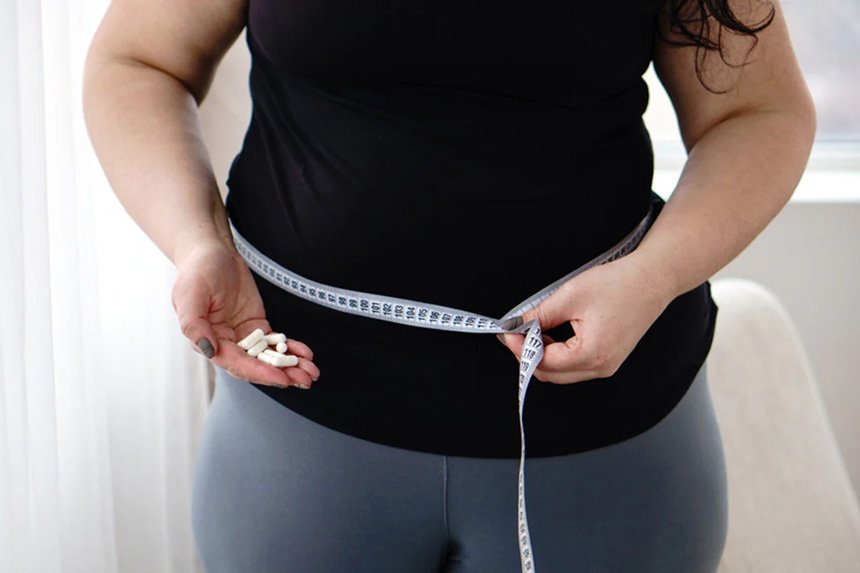Bone Loss

Vitamin D is critical for maintaining bone density by facilitating calcium absorption. Deficiency can lead to decreased bone mineral density, increasing the risk of fractures and bone diseases such as osteoporosis. While studies on the effects of vitamin D supplementation on bone loss have yielded mixed results, ensuring adequate intake is essential for bone health.
Weight Gain

Obesity has been identified as a risk factor for vitamin D deficiency. A study from 2020 suggests a link between low vitamin D levels and increased body weight and abdominal fat, particularly in males. This connection points to the importance of maintaining adequate vitamin D levels for weight management. [10]
Vitamin D deficiency is a prevalent issue with far-reaching health implications. From weakening the immune system to affecting bone health and mood, the absence of sufficient vitamin D levels can significantly impact overall well-being. Recognizing the symptoms of deficiency is the first step towards addressing this global health concern. Adequate sunlight exposure, dietary adjustments, and supplementation can help maintain healthy vitamin D levels, ensuring the body’s optimal functioning. Always consult with a healthcare professional before starting any new supplement regimen, especially if you suspect a vitamin D deficiency.





